Can Cats Eat Caramel? The Ultimate Guide
As we know, caramel is popular for its irresistible blend of sweet and savoury notes safe for humans but the main question is “Can cats eat caramel safely?” If you are worried for your cat’s health after sharing human foods with her such as caramel, so do not worry.
In this comprehensive guide, we will discuss cats and caramel and will also discuss the health impacts of caramel on cats. As well as we will also discuss some other questions about cats and caramel. So let’s get started to find out the right answer.
What Is Caramel?
Caramel is a sweet and gooey treat that’s made by heating sugar until it turns a golden-brown colour. Sometimes, butter or cream is added to give it a rich flavour and smooth texture. It’s used to make candies, sauces, and toppings for desserts like ice cream and cakes. Caramel adds a delicious sweetness to whatever it’s put on!
Can Cats Eat Caramel?
Can cats eat caramel? No, cats should not eat caramel because caramel contains sugar, which is not good for cats in large amounts. Cats can’t digest sugar well, and too much of it can cause stomach upset or even more serious health issues. Additionally, caramel often contains ingredients like butter or cream, which can be hard for cats to digest and may upset their stomachs. So, it’s best to keep caramel away from your furry feline friend!
Is Caramel Bad For Cats?
As we have discussed cats have trouble digesting sugar, which is in caramel. Also, caramel often has other ingredients like butter or cream, which can upset a cat’s stomach. So, it’s better to avoid giving caramel to your cat.
Health Risks Of Feeding Caramel To Cats
Here’s a breakdown of the health risks associated with feeding caramel to cats:
Digestive Upset:
Cats have delicate stomachs, and caramel’s high sugar content can be tough for them to process. Sugar can ferment in the gut, leading to gas, bloating, and discomfort. This can result in symptoms like diarrhoea, vomiting, or abdominal pain. In severe cases, it may even lead to dehydration, which can be dangerous for cats.
Obesity:
Caramel is not only sugary but also calorie-dense. Regular consumption of caramel can lead to an excess intake of calories, contributing to weight gain in cats. Obesity in cats is a serious health concern as it can lead to various issues such as diabetes mellitus, joint problems like arthritis due to added stress on joints, and cardiovascular issues like heart disease.
Dental Problems:
Cats’ teeth are susceptible to decay and plaque buildup, just like humans. Caramel’s sticky texture allows sugar to adhere to the teeth, providing a feast for bacteria. Over time, this leads to the formation of plaque, which can harden into tartar, causing dental decay and gum disease. Dental issues can be painful for cats and may require veterinary intervention, including dental cleanings or extractions.
Diabetes Risk:
Cats are prone to developing diabetes mellitus, a condition characterized by high blood sugar levels. Excessive sugar consumption, such as that found in caramel, can disrupt the delicate balance of a cat’s blood sugar regulation. Over time, this can strain the pancreas, which produces insulin, leading to insulin resistance and an increased risk of diabetes mellitus development.
Pancreatitis:
Caramel often contains ingredients like butter or cream, which are high in fat. Feeding caramel to cats can overload their pancreas with fat, leading to inflammation known as pancreatitis. Pancreatitis can cause severe abdominal pain, vomiting, and diarrhoea, and in severe cases, it can be life-threatening if not promptly treated by a veterinarian.
Allergic Reactions:
Some cats may have allergies to certain ingredients in caramel, such as dairy products or flavourings. Allergic reactions can manifest as skin rashes, itching, gastrointestinal upset (such as vomiting or diarrhoea), or respiratory symptoms (like coughing or difficulty breathing). Feeding caramel to allergic cats can exacerbate these reactions, leading to discomfort or illness, and may necessitate immediate medical attention.
Nutritional Imbalance:
Caramel lacks essential nutrients that cats need for optimal health, such as vitamins, minerals, and proteins. Feeding cats caramel as a treat or snack may contribute to an imbalance in their diet, leading to deficiencies in vital nutrients necessary for their overall well-being. Over time, this can impact their immune system, energy levels, and overall health, making them more susceptible to illness and disease.
It’s important to prioritize a cat’s dietary needs and avoid feeding them foods like caramel, which can pose significant health risks and may not provide any nutritional benefits.
Does Caramel Provide Any Benefits To Cats?
Caramel doesn’t provide any benefits to cats. It’s tasty for us humans, but for cats, it doesn’t give them anything they need to stay healthy. Plus, it can cause them problems if they eat too much of it. So, it’s best to keep caramel away from your furry friends and stick to treats made specifically for cats!
What Should You Do If Your Cat Accidentally Consumes Caramel?
Here’s a step-by-step guide on what to do if your cat accidentally consumes caramel:
- Stay Calm: If you catch your cat eating caramel, try not to panic. Stay calm, and focus on taking the necessary steps to help your cat.
- Assess the Situation: Determine how much caramel your cat has ingested and if there are any other concerning factors, such as the presence of other potentially harmful ingredients like chocolate or nuts.
- Monitor Your Cat: Keep an eye on your cat for any immediate signs of distress or illness. Watch out for symptoms like vomiting, diarrhoea, lethargy, or changes in behaviour.
- Contact Your Veterinarian: If your cat has consumed caramel, it’s a good idea to contact your veterinarian for guidance. Describe the situation, including the quantity of caramel ingested and any symptoms your cat may be experiencing.
- Follow the Veterinarian’s Advice: Your veterinarian may provide instructions based on your cat’s specific situation. They may advise you to monitor your cat closely at home or recommend bringing your cat in for an examination.
- Provide Water: Offer your cat fresh water to drink. This can help dilute any sugar or other substances from the caramel and keep your cat hydrated.
- Do Not Induce Vomiting: Avoid inducing vomiting in your cat unless specifically instructed to do so by your veterinarian. Inducing vomiting can be dangerous and should only be done under veterinary supervision.
- Observe for Symptoms: Keep a close watch on your cat for any developing symptoms. If you notice any concerning signs or if your cat’s condition worsens, contact your veterinarian immediately.
- Follow-up Care: Depending on your veterinarian’s advice, your cat may require follow-up care or monitoring. Follow any instructions provided by your veterinarian to ensure your cat’s well-being.
- Prevent Future Incidents: Take steps to prevent your cat from accessing caramel or other potentially harmful foods in the future. Store food items securely and be mindful of what your cat can reach.
Remember, it’s always best to err on the side of caution and seek guidance from your veterinarian whenever your cat consumes something they shouldn’t.
Can Cats Die If They Eat Caramel?
Yes, cats can die if they eat caramel. It’s because caramel has a lot of sugar, which cats can’t digest well. Eating too much sugar can make cats very sick with diabetes. Also, caramel sometimes has things like chocolate or xylitol, which are toxic to cats. These can cause problems like vomiting, seizures, or even death. So, it’s important to keep caramel and other sugary treats away from cats to keep them safe and healthy.
How To Stop Your Cat From Eating Caramel?
here’s a detailed guide on how to stop your cat from eating caramel, broken down into easy-to-understand steps:
1. Secure Caramel:
Make sure caramel is stored securely in sealed containers or in places your cat can’t access, like high shelves or cabinets. This prevents your cat from accidentally getting into it and eating it.
2. Provide Alternatives:
Give your cat safe and tasty alternatives to caramel, such as small pieces of cooked chicken or fish, freeze-dried meat treats, or specially formulated cat treats. By offering these alternatives, you can satisfy your cat’s cravings for snacks without the risk of them eating something harmful.
3. Monitor Environment:
Regularly check your home for any spills or open containers of caramel. Cats are curious creatures and may investigate new smells or tastes, so it’s important to clean up any spills promptly and ensure that caramel is always stored securely.
4. Train Your Cat:
Use positive reinforcement training techniques to teach your cat to avoid caramel. When you catch your cat showing interest in caramel but then turning away, praise them and give them a treat or toy as a reward. Over time, your cat will learn that avoiding caramel earns them good things.
5. Educate Family:
Make sure everyone in your household understands the importance of keeping caramel away from the cat. This includes children, guests, and anyone else who may be in your home. Educate them about the potential dangers of feeding human foods to pets and encourage them to follow the guidelines for keeping the cat safe.
6. Consult Vet:
If despite your efforts, your cat continues to seek out and eat caramel, consider consulting with your veterinarian or an animal behaviourist for further guidance. They can provide personalized advice and strategies to address your cat’s specific behaviour and dietary needs, ensuring their safety and well-being.
By following these steps and being proactive in preventing your cat from accessing caramel, you can help keep them safe and healthy. Remember, your cat’s well-being is worth the extra effort to protect them from potentially harmful foods.
Tips For Keeping Caramel And Other Harmful Foods Away From Cats
Here’s a detailed guide on keeping caramel and other harmful foods away from cats, presented in easy-to-understand steps:
1. Store Foods Safely:
Keep all foods, especially those harmful to cats like caramel, securely stored in containers with tight-fitting lids or in cabinets and high places where your cat can’t reach. This prevents accidental access.
2. Be Mindful of Counter Space:
Avoid leaving foods, especially sweets like caramel, unattended on countertops or tables. Cats are curious and may try to investigate or even taste anything left out in the open.
3. Clean Up Spills Promptly:
Accidental spills of caramel or other foods should be cleaned up promptly to prevent your cat from licking or ingesting them. Use water and soap to thoroughly clean the affected area.
4. Secure Trash Cans:
Ensure that trash cans are securely closed or kept in cabinets with childproof locks to prevent your cat from rummaging through them and finding harmful foods.
5. Offer Cat-Safe Treats:
Provide your cat with safe and tasty treats specifically made for feline consumption. This satisfies their desire for snacks without the risk of them eating something harmful like caramel.
6. Monitor Guests:
When entertaining guests, remind them not to offer any human foods, especially sweets containing caramel, to your cat. Some people may not be aware of the dangers posed to pets by certain foods.
7. Use Deterrents:
Consider using deterrents like citrus sprays, aluminium foil, or double-sided tape to discourage your cat from accessing areas where harmful foods are stored or where spills may occur.
8. Train Your Cat:
Use positive reinforcement techniques to train your cat to stay away from harmful foods like caramel. Reward good behaviour with praise, treats, or toys when they avoid these foods.
9. Educate Family Members:
Ensure that everyone in your household, including children, understands the importance of keeping harmful foods away from the cat. Educate them about the potential dangers and encourage them to follow guidelines.
10. Consult a Veterinarian:
If you’re having trouble keeping harmful foods away from your cat despite your best efforts, consult with your veterinarian for further advice and guidance on how to protect your feline friend. They can provide personalized recommendations based on your cat’s specific needs and behaviour.
By following these tips, you can help ensure that your cat stays safe and healthy by avoiding potentially harmful foods like caramel.
Can Cats Eat Caramel Sauce?
No, cats should not eat caramel sauce. Cats lack the necessary enzymes to properly digest sugars found in caramel sauce. Consuming caramel sauce can lead to digestive upset, including diarrhoea and vomiting.
Additionally, caramel sauce often contains other ingredients like chocolate or xylitol, which are toxic to cats and can cause serious health problems or even death if ingested. Therefore, it’s best to keep caramel sauce away from your cat and offer them cat-friendly treats instead.
Can Cats Eat Caramel Pudding?
No, cats should not eat caramel pudding. Cats lack the enzymes needed to properly digest sugars found in caramel pudding. Consuming caramel pudding can lead to digestive issues like diarrhoea and vomiting.
Additionally, caramel pudding often contains other ingredients like chocolate or xylitol, which are harmful to cats and can cause serious health problems or even be fatal if ingested.
Therefore, it’s best to keep caramel pudding away from your cat and offer them safe and appropriate treats instead.
Can Cats Eat Caramel Rice Cakes?
No, cats should not eat caramel rice cakes. As we have discussed above cats lack the enzymes needed to properly digest sugars found in caramel rice cakes. Consuming caramel rice cakes can lead to digestive issues like diarrhoea and vomiting.
Additionally, caramel rice cakes often contain other ingredients like Caramel Pudding and Caramel Sauce such as chocolate or xylitol, which are harmful to cats and can cause serious health problems or even be fatal if ingested.
What Sweets Are Toxic to Cats?
Here’s a detailed explanation of sweets that are toxic to cats, in easy-to-understand terms:
1. Chocolate:
Chocolate contains substances called theobromine and caffeine, which are highly toxic to cats. Even small amounts of chocolate can cause symptoms like vomiting, diarrhoea, rapid breathing, increased heart rate, seizures, and even death.
2. Xylitol:
Xylitol is a sugar substitute commonly found in sugar-free sweets like gum, candies, and baked goods. Ingesting xylitol can cause a rapid release of insulin in cats, leading to hypoglycemia (low blood sugar), which can be life-threatening.
3. Raisins and Grapes:
While not typically found in sweets, raisins and grapes are toxic to cats and can cause kidney failure if ingested. Keep all sweets containing raisins or grapes away from your cat.
4. Macadamia Nuts:
Macadamia nuts, sometimes used in cookies and candies, can cause weakness, depression, vomiting, tremors, and hyperthermia (elevated body temperature) in cats.
5. Caffeine:
Sweets containing caffeine, such as some chocolates, energy drinks, and certain medications, can be toxic to cats. Ingesting caffeine can cause symptoms like restlessness, rapid breathing, increased heart rate, tremors, seizures, and even death.
6. Alcohol:
Alcoholic sweets, like rum cakes or chocolates filled with alcohol, are toxic to cats. Alcohol ingestion can lead to symptoms such as vomiting, diarrhoea, difficulty breathing, tremors, coma, and death.
7. Candy Wrappers:
Cats may sometimes ingest candy wrappers while trying to eat the sweets inside. Ingesting these wrappers can lead to intestinal blockages or obstructions, which require immediate veterinary attention.
8. High-Sugar Treats:
While not necessarily toxic, high-sugar sweets like caramel, caramel rice cakes, and caramel pudding can lead to digestive upset and other health issues in cats. It’s best to avoid feeding these sweets to your cat altogether.
To keep your cat safe, always store sweets securely out of their reach and be mindful of the ingredients in any treats you offer them.
Popular Human Foods That Are Safe For Cats To Consume
Here are some popular human foods that are safe for cats to consume:
1. Cooked Meat:
Lean meats like chicken, turkey, and beef are safe for cats to eat in small amounts. Make sure the meat is fully cooked and free from seasoning, bones, and excess fat.
2. Fish:
Cooked fish, such as salmon or tuna, can be a tasty and nutritious treat for cats. Just be cautious of fish bones and avoid giving them raw fish, as it may contain harmful bacteria or parasites.
3. Eggs:
Cooked eggs are one of the good sources of protein for cats. Offer them plain scrambled eggs or hard-boiled eggs without any seasoning or additives.
4. Plain Yogurt:
Plain yoghurt is safe for cats in moderation. It contains probiotics that can help support their digestive health. Avoid flavoured yoghurts or those sweetened with artificial sweeteners like xylitol.
5. Fruits:
Some fruits like bananas, apples (without seeds), and blueberries are safe for cats in small amounts. These fruits can provide vitamins and antioxidants. Always remove any pits or seeds before giving them to your cat.
6. Vegetables:
Certain vegetables like cooked carrots, steamed broccoli, and cooked pumpkins are safe for cats and can provide fibre and essential nutrients. Avoid giving them raw or seasoned vegetables.
7. Cooked Rice or Pasta:
Plain, cooked rice or pasta can be a bland but safe option for cats with upset stomachs. However, these should only be offered occasionally and in small amounts.
8. Catnip:
Catnip is an herb that is enjoyable and safe for most cats. It can induce playful behaviour and relaxation in cats when sniffed or ingested.
9. Plain Peanut Butter:
Small amounts of plain peanut butter, without any added sugar or xylitol, can be a tasty treat for cats. However, it should be given in small amounts due to its high-fat content.
10. Cat Treats:
Specifically formulated cat treats are designed to meet the nutritional needs of cats and are a safe and convenient option for rewarding your feline friend.
Always introduce new foods to your cat gradually and in small amounts to ensure they tolerate them well.
Conclusion:
In conclusion, it’s crucial to understand that while caramel may be a delicious treat for us, it poses significant health risks to our cats. Cats lack the ability to digest sugar properly, and ingredients like butter or cream commonly found in caramel can lead to digestive upset and even serious health issues.
It’s essential to prioritize your cat’s well-being by keeping caramel and other harmful foods out of their reach, offering them safe alternatives, and being mindful of potential dangers in their environment.
By following these guidelines and consulting with your veterinarian as needed, you can help ensure a happy and healthy life for your beloved feline friend.
FAQs:
What Happens If My Cat Licks Caramel?
If your cat licks caramel, it can upset their stomach and cause digestive issues due to the sugar and other ingredients they can’t digest well. Keep caramel away from your cat to keep them healthy.
Are Cats Allergic To Caramel?
Yes, some cats may be allergic to ingredients like dairy or flavourings in caramel, causing reactions such as skin rashes, vomiting, or difficulty breathing. It’s best to avoid giving caramel to cats to prevent potential allergic reactions.
Can Cats Eat Caramel Ice Cream?
No, cats should not eat caramel ice cream as it contains ingredients like sugar, dairy, and potentially harmful additives that can upset their stomach and cause health issues. Stick to treats specifically made for cats to keep them safe and healthy.
Can I Give My Cat Sugar-Free Caramel?
No, it’s not safe to give your cat sugar-free caramel as it often contains xylitol, a sweetener that is toxic to cats and can cause serious health problems. Avoid giving any form of caramel to your cat to prevent potential harm.
Can Cats Have Caramel Apples?
No, cats should not have caramel apples as they contain ingredients like sugar, caramel, and potentially toxic substances like chocolate or nuts, which can harm cats and cause digestive issues or other health problems. Keep caramel apples away from your cat to ensure their safety.
Can Cats Eat Caramel Popcorn?
No, cats should not eat caramel popcorn as it contains ingredients like sugar, caramel, and possibly harmful additives that can upset their stomach and cause health issues. Stick to treats specifically made for cats to keep them safe and healthy.
Allow The Push Notification Of The Cat Food Info For More Articles Related To Cats Food.

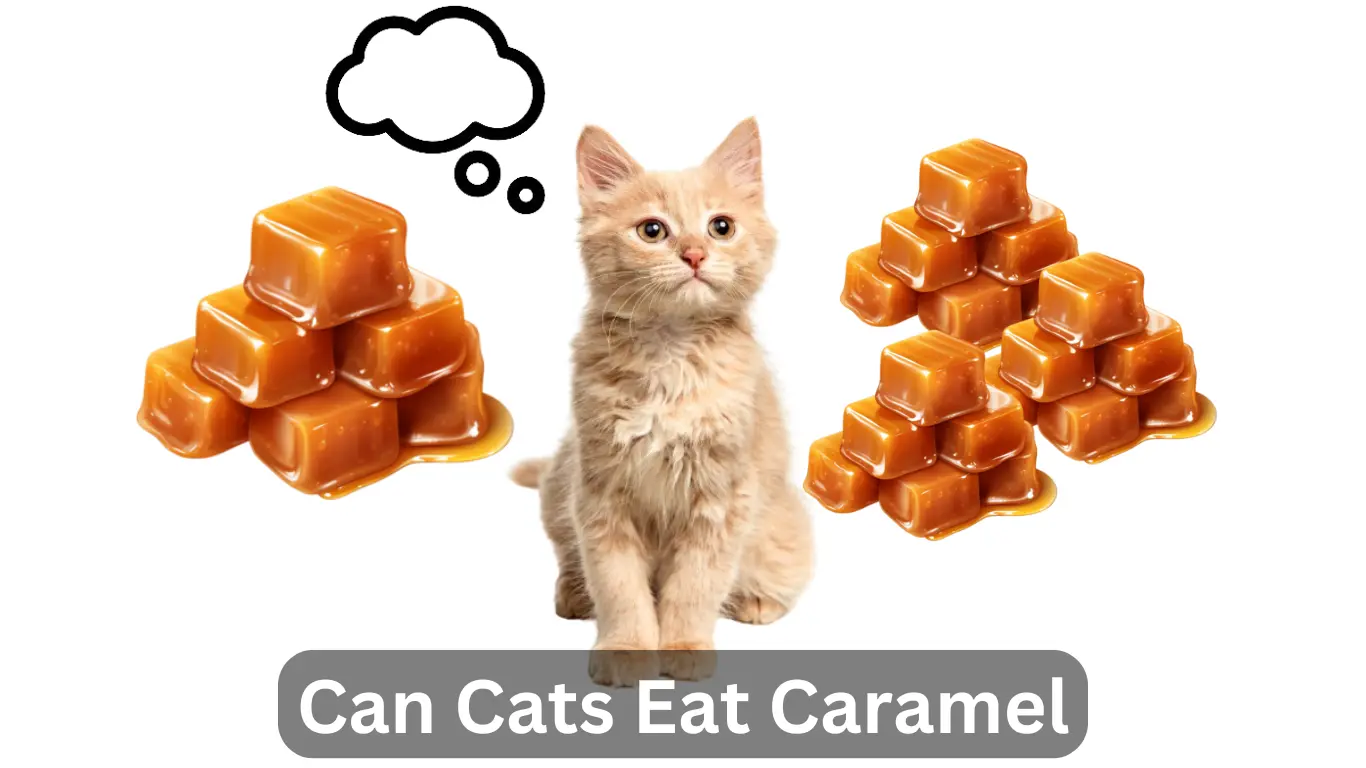
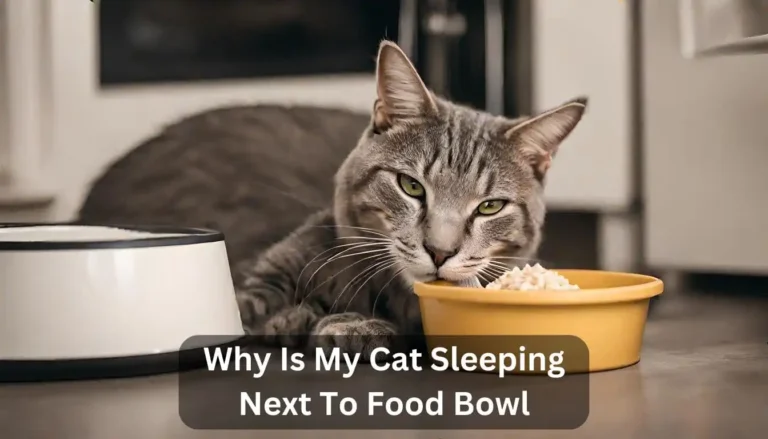
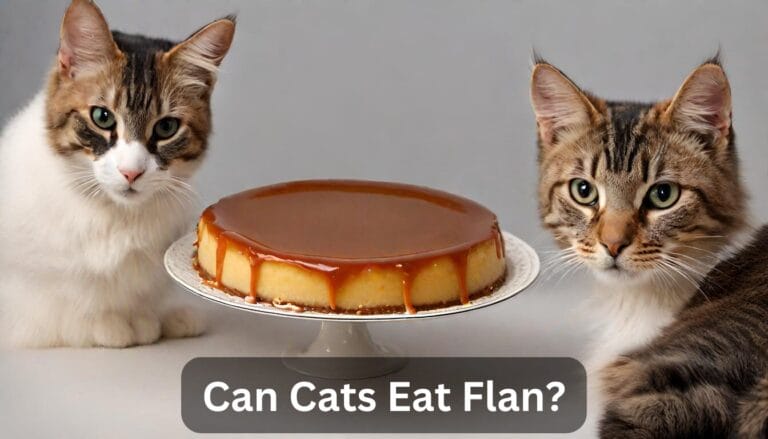
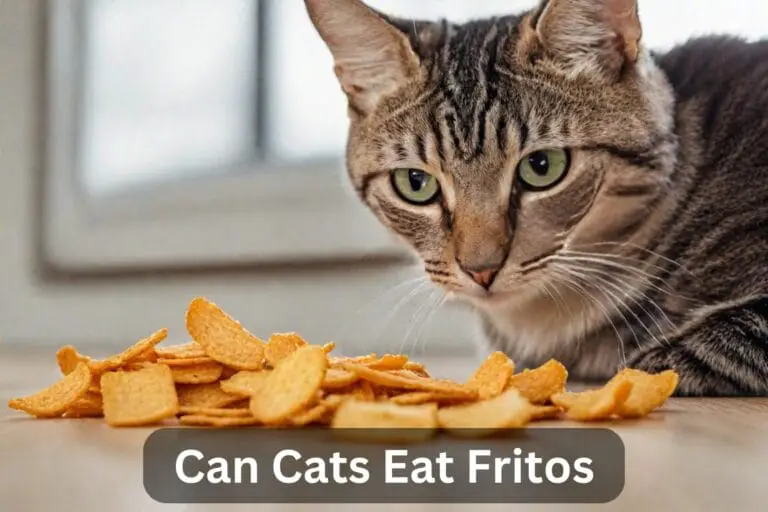
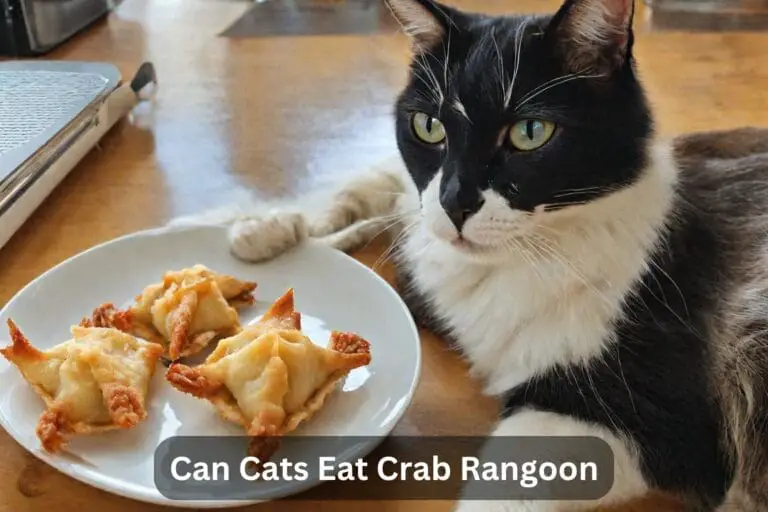
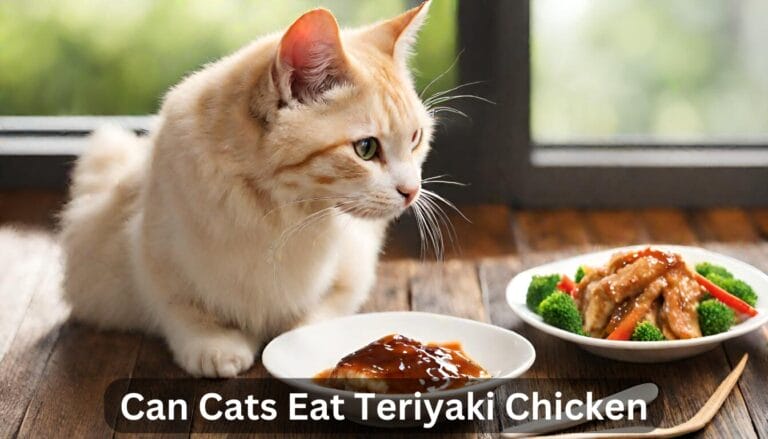
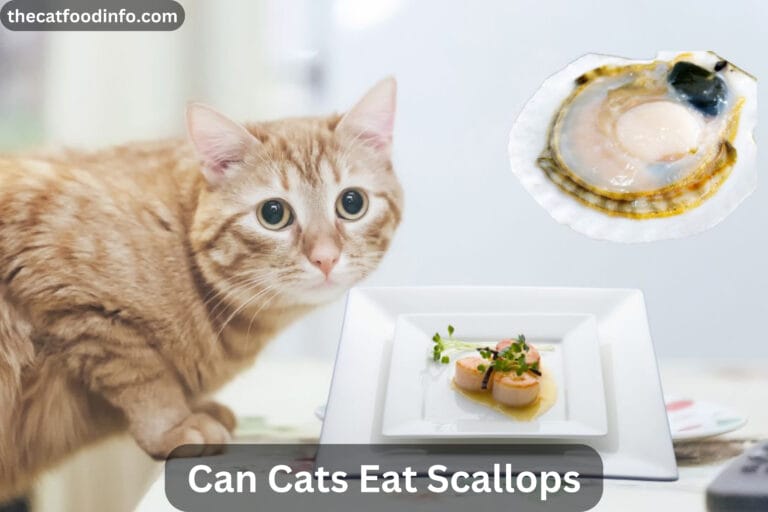
4 Comments